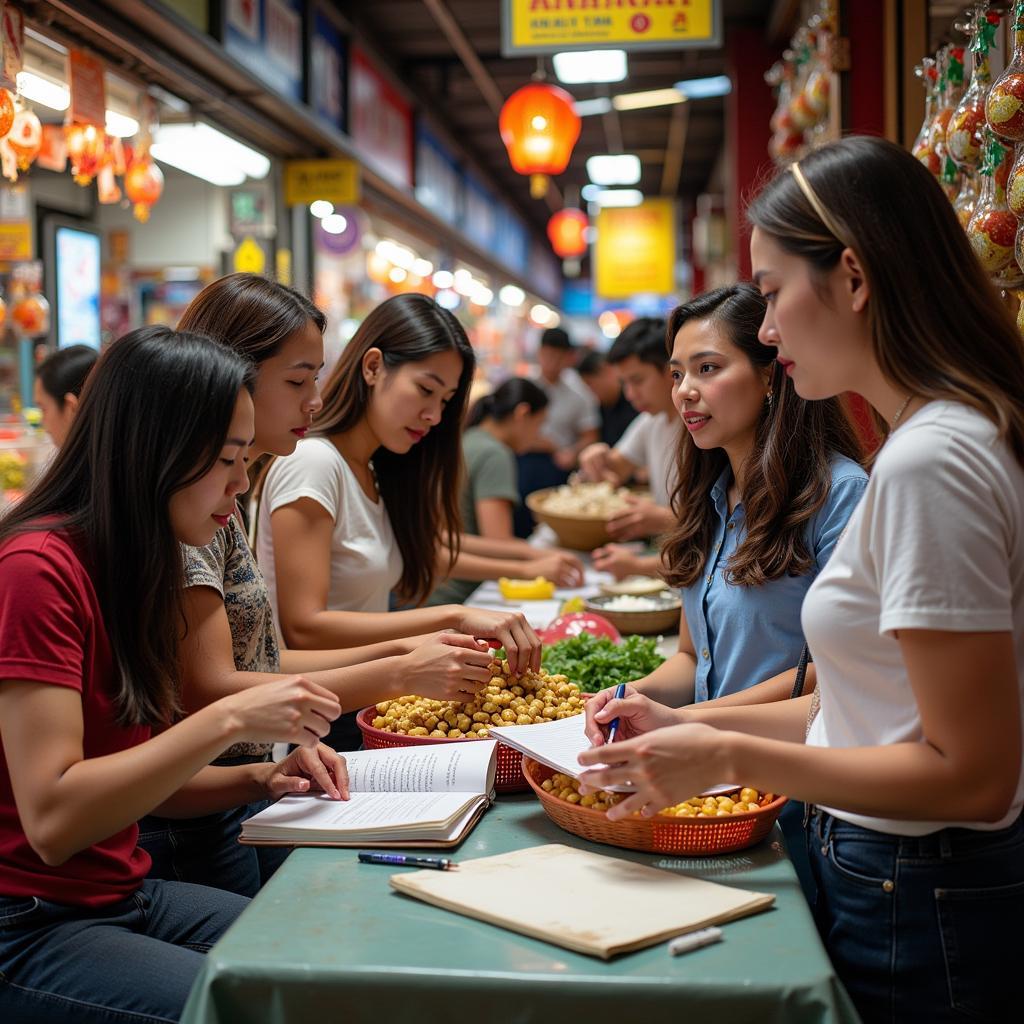Indonesia played a crucial role in striving towards the ASEAN Drug-Free 2015 goal. This ambitious initiative aimed to create a Southeast Asia free from the grip of illegal drugs. While the goal wasn’t fully realized by 2015, Indonesia’s commitment and actions contributed significantly to the ongoing fight against drug trafficking and abuse within the region.
Indonesia’s Multi-Pronged Approach to a Drug-Free ASEAN
Indonesia’s strategic approach to the ASEAN Drug-Free 2015 goal involved multiple facets, encompassing law enforcement, international cooperation, and public awareness campaigns. These efforts aimed to tackle the drug problem from various angles, recognizing the complexity of the issue.
Strengthening Law Enforcement and Border Control
Indonesia recognized that strong law enforcement is paramount in combating drug trafficking. The country intensified its efforts to intercept drug shipments, dismantle drug syndicates, and prosecute offenders. This involved increased surveillance at borders, airports, and seaports, as well as enhanced collaboration between various law enforcement agencies. Stricter penalties for drug-related crimes were also implemented as a deterrent.
Fostering Regional and International Cooperation
Recognizing that drug trafficking is a transnational crime, Indonesia actively engaged in regional and international collaborations. The country worked closely with other ASEAN member states to share intelligence, coordinate operations, and harmonize drug control strategies. Indonesia also partnered with international organizations like the United Nations Office on Drugs and Crime (UNODC) to strengthen its capacity in drug prevention and treatment. These partnerships were essential in addressing the cross-border nature of drug trafficking.
Raising Public Awareness through Education and Prevention Programs
Indonesia understood that combating drug abuse requires a societal approach. The country implemented various public awareness campaigns targeting different demographics, particularly youth. Educational programs in schools and communities aimed to raise awareness about the dangers of drug use and promote healthy lifestyles. Prevention programs focused on providing support and rehabilitation services for those struggling with addiction.
Challenges and Lessons Learned
While Indonesia made substantial progress, the ASEAN Drug-Free 2015 goal faced considerable challenges. The porous borders within the region, the evolving tactics of drug traffickers, and the persistent demand for illicit drugs posed significant obstacles. However, the experience gained during this period provided valuable lessons for the ongoing fight against drugs. It highlighted the importance of sustained commitment, regional cooperation, and comprehensive strategies that address both supply and demand reduction.
What were Indonesia’s primary roles in the ASEAN Drug-Free 2015 initiative?
Indonesia focused on strengthening law enforcement, fostering regional and international cooperation, and raising public awareness through education and prevention programs.
What were some of the challenges faced in achieving the ASEAN Drug-Free 2015 goal?
Challenges included porous borders, evolving trafficking tactics, and persistent drug demand.
Conclusion
Indonesia’s contribution to the ASEAN Drug-Free 2015 goal, while not achieving complete eradication, was instrumental in advancing regional drug control efforts. The country’s multi-pronged approach, focusing on law enforcement, cooperation, and public awareness, laid the groundwork for continued progress in the fight against drugs. Indonesia’s active role underscores the importance of collaborative efforts and sustained commitment in addressing this complex transnational issue. Apa Saja Peran Indonesia Untuk Mewujudkan Asean Drug Free 2015? Their commitment serves as a valuable example for other nations striving for a drug-free future.
FAQ
- Was the ASEAN Drug-Free 2015 goal fully achieved? No, while significant progress was made, the goal was not fully realized by 2015.
- What were some of Indonesia’s key contributions? Indonesia strengthened law enforcement, fostered international cooperation, and implemented public awareness campaigns.
- What challenges hindered the achievement of the goal? Porous borders, evolving trafficking methods, and persistent demand for drugs posed major challenges.
- What lessons were learned from this initiative? The importance of sustained commitment, regional cooperation, and comprehensive strategies was highlighted.
- What is the current status of drug control efforts in ASEAN? Efforts continue, building on the foundation laid by initiatives like the ASEAN Drug-Free 2015 goal.
- How did Indonesia contribute to regional cooperation? Indonesia actively collaborated with other ASEAN members and international organizations to share intelligence and coordinate operations.
- What role did public awareness campaigns play? They aimed to educate the public about the dangers of drug use and promote healthy lifestyles.
Need support? Contact us 24/7: Phone: 0369020373, Email: aseanmediadirectory@gmail.com, or visit us at: Thon Ngoc Lien, Hiep Hoa, Bac Giang, Vietnam.

